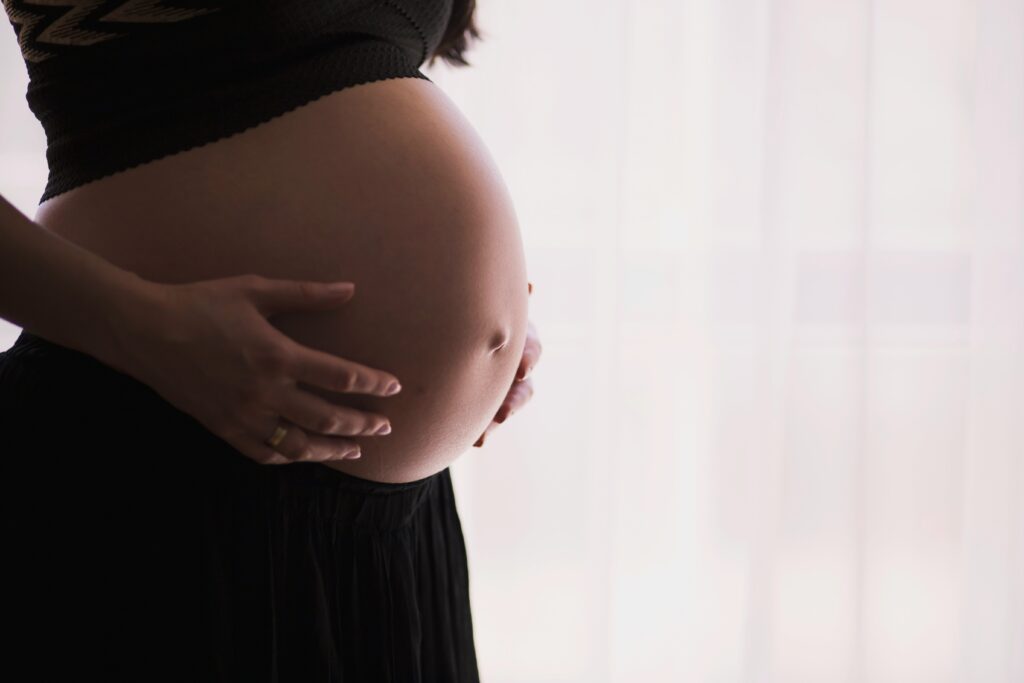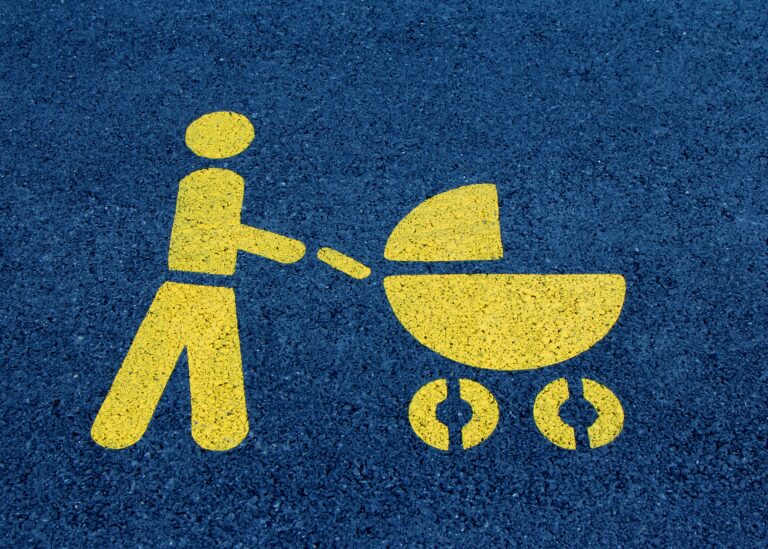“Can you get divorced while pregnant in Louisiana?” is a concern for many expecting mothers. Yes, you can get divorced, but the process comes with extra steps like:
- Sorting out paternity
- Custody
- Child support for your unborn child.
Divorce during pregnancy can feel overwhelming, but knowing what to expect will help you make confident decisions.
Keep reading to find out all the important details, so you can handle your situation smoothly.
Table of Contents
ToggleKey Points
- You can get divorced while pregnant in Louisiana without legal barriers.
- Pregnancy adds complications like paternity, child custody, and support decisions.
- Paternity must be confirmed in cases of doubt.
- Custody decisions can be made even though the baby hasn’t been born yet.
- Financial support, like covering pregnancy costs, will be decided by the court.
- The divorce process might be delayed until after the baby is born for legal reasons.
Can You Get Divorced While Pregnant in Louisiana? What to Expect?
Yes, you can get divorced while pregnant in Louisiana. The state doesn’t have any law that stops a pregnant person from filing for divorce. However, pregnancy can make the process more complicated.
Why?
Because you’ll have to think about things like:
- Paternity (who the baby’s dad is)
- Custody (who will take care of the baby once it’s born)
- Child support (money for raising the baby).
All of these decisions have to be figured out before the divorce can be final.
1. Paternity Questions During Pregnancy
One big issue in divorces during pregnancy is determining paternity, which means figuring out who the father of the baby is. In Louisiana, the husband is the father of any child born during the marriage. This is called “presumption of paternity.”
However, if there’s any doubt about who the father is, a paternity test might be needed.
For example, imagine a woman is pregnant, but she and her husband have been separated for some time, and she is involved with someone else. In this case, the court will want to confirm who the father is.
Paternity matters because it impacts decisions about child support and custody. If the husband is proven to not be the father, he won’t have legal responsibility for the child.
Figuring out paternity can be stressful, but it’s important. It affects everything about the future of the child. Until the court is sure about who the father is, decisions about custody and child support can’t be finalized.
2. Custody Plans for the Unborn Child
Even though the baby hasn’t been born yet, the court still considers custody in a divorce during pregnancy. Custody means deciding where the baby will live and who will take care of them once they’re born.
This can be tricky because you’re planning for a child who isn’t here yet.
Usually, courts in Louisiana favor the mother, especially if the mother is breastfeeding. But the court will still want to make sure that the father gets a chance to be involved in the baby’s life.
For example, once the baby is born, the father will get visitation rights. It means he can spend time with the child.
Let’s say the mother wants to move out of Louisiana after the baby is born. The court will look closely at how that affects the father’s visitation rights. The judge might allow the move, but they’ll make sure that the father still gets a chance to be part of the baby’s life.
These are the kinds of things that need to be planned during the pregnancy.
Custody decisions may not be fully made until after the baby is born. But the court likes to have a plan in place to ensure both parents are involved.
3. Financial Responsibilities for the Baby
During a pregnancy divorce, financial issues also become more complicated. The court will look at who is responsible for paying for things like:
- Medical bills for the pregnancy
- How the baby will be financially supported.
In Louisiana, the father is usually required to help pay for expenses related to the pregnancy. The court may issue temporary orders for the father to cover things like prenatal care, delivery costs, and health insurance premiums for the mother.
Similarly, if the mother is covered under the father’s health insurance, the court usually orders him to maintain that coverage (until the child is born).
Once the baby is born, the father will likely have to pay child support, which is money to help take care of the child’s needs, like food, clothing, and housing.
The court calculates child support based on two things:
- Both parents’ incomes
- How much time each parent spends with the child.
Keep in mind that Louisiana follows community property law. So, if the father has a higher income, he will be asked to pay more to ensure the baby is well taken care of.
After filing for divorce, you’ll want to be sure when it’s officially over. Here are four simple ways to know if your divorce is final. It’s important to know because most people have no idea about it.
Practical Challenges of Divorcing While Pregnant in Louisiana
Divorcing while pregnant in Louisiana comes is challenging. You will have to handle lots of things, which can be stressful. Let’s take a look at what you will have to deal with:

Emotional Stress of Divorce and Pregnancy
Divorce is already a difficult and emotional process. When you add pregnancy into the mix, things can get even more complicated.
Pregnancy is a time when emotions can run high, and the added stress of ending a marriage can make everything feel overwhelming.
For example, a pregnant person might feel extra emotional due to hormone changes, which can make the stress of a divorce even harder to handle. It’s common for people to feel sadness, anger, or even guilt during a divorce. Unfortunately, pregnancy can intensify these feelings.
Couples going through a pregnancy divorce might also struggle with communication. It’s hard to make important decisions when both people are dealing with their own emotions. This is why many couples choose to seek counseling or mediation during a pregnancy divorce.
This helps them manage their emotions and make decisions that are best for the baby.
Delays in the Divorce Process
Divorcing while pregnant can also cause delays in the legal process. Since there are extra decisions that need to be made regarding the unborn child, the court may take longer to finalize the divorce.
For example, the court might not want to make final decisions about custody and support until after the baby is born. This can stretch out the divorce timeline by several months.
In some cases, if there are disagreements about paternity or child support, these issues can slow things down even more. The court will need to resolve these issues before the divorce can be finalized.
Imagine having to wait months longer for your divorce to be complete because of questions about who the father is or how much child support should be paid.
So, it’s not uncommon for pregnancy divorces to take longer than regular divorces.
Parenting Plans for a Newborn
Another big challenge of divorcing while pregnant is making a parenting plan for a newborn. Normally, a parenting plan outlines:
- Where the child will live
- How much time the kid will spend with each parent
- How decisions about the child will be made.
But when the child hasn’t been born yet, it’s hard to make a plan.
For instance, newborns need a lot of care and attention. Therefore, many courts in Louisiana will give the mother more time with the baby, especially if she is breastfeeding.
However, the court will still want to make sure that the father has a role in the child’s life, even in the early months. This means the parents will have to agree on things like visitation and when the father will spend time with the baby.
It can be tough to make these decisions when you’re going through a divorce. But the court’s main focus is always on what’s best for the baby.
The court wants to make sure that both parents are involved. Moreover, it ensures that the baby is raised in a stable environment, even if the parents are no longer together.
So, these are the challenges you will have to deal with if you decide to get divorced while pregnant.
Also, did you know filing for divorce online is easy? Check out this complete guide to filing for divorce online while managing pregnancy stress. However, you should still consult an experienced divorce lawyer before proceeding.
Final Words
To sum up:
- In Louisiana, you can get divorced while pregnant.
- According to the law, paternity must be confirmed if there’s any doubt about who the father is.
- The court considers the child custody arrangements, even for an unborn baby.
- The father is usually ordered to provide financial support during and after the pregnancy.
- The divorce process may take longer if you are pregnant because of additional legal steps for the unborn child.
Overall, divorce during pregnancy in Louisiana can be challenging. But with the right information, you can get through it successfully.

